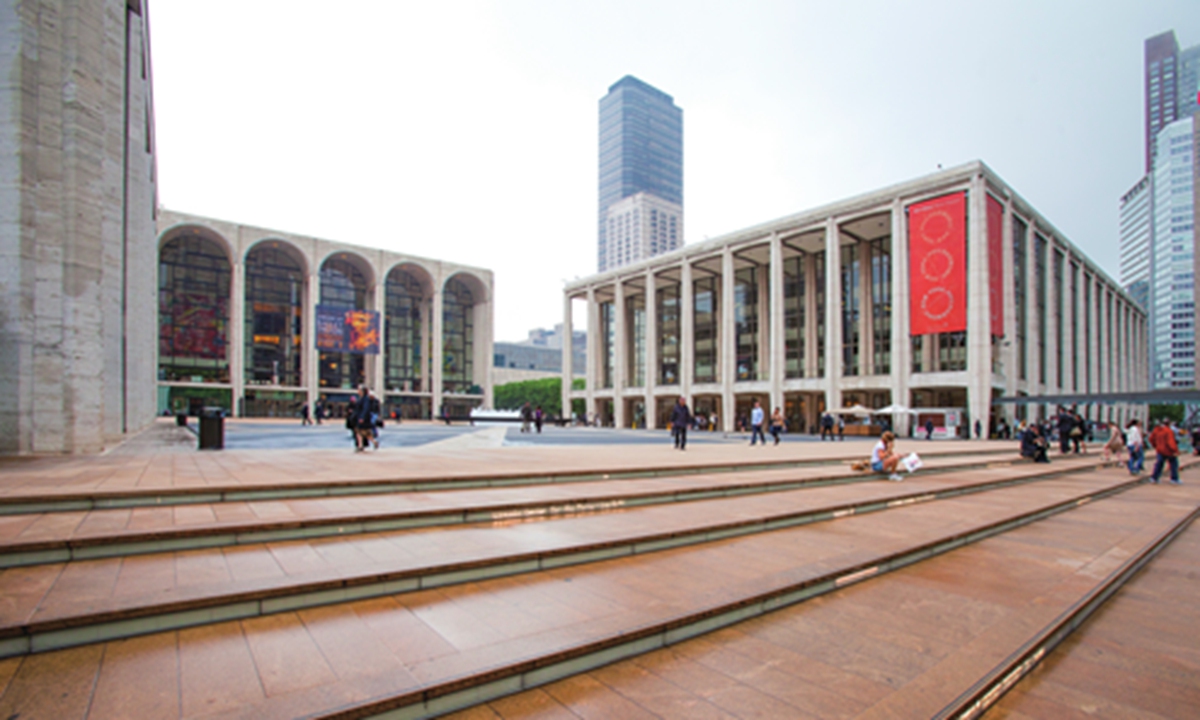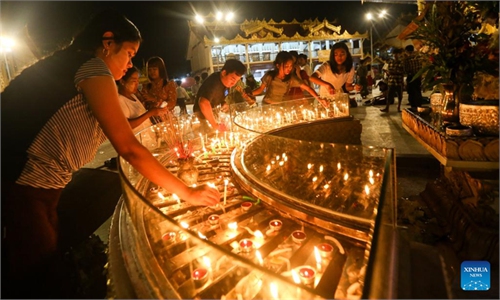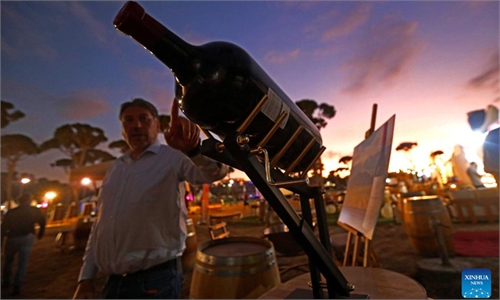ARTS / CULTURE & LEISURE
Music festival kicks off in New York City with ‘Tales from Beijing’

Lincoln Center in New York City, the US Photo: VCG
China Now Music Festival, a leading force in introducing music from China to the US, kicked off its fifth season on Sunday at the Lincoln Center in New York City, with fusion music works that "belong to both the East and the West."
The annual event, a collaboration between the US-China Music Institute (USCMI) of the Bard College Conservatory of Music and China's Central Conservatory of Music (CCOM), is dedicated to promoting understanding and appreciation of music from contemporary China through an annual series of concerts and academic activities.
"We seek to reveal the differences in culture and tradition that have historically divided East from West, only to break them down and, through our artistic experience, create something new that belongs to both the East and the West," said the festival's artistic director Cai Jindong, who is also the director of the USCMI.
Music exchanges play an important role in promoting mutual understanding between the US and China at the current time when bilateral relations are difficult, Leon Botstein, president of the Bard College, told the Xinhua News Agency at a reception after the concert on Sunday.
In the fall of 2018, the Bard College started to offer an undergraduate performance degree program in selected Chinese instruments including erhu, guzheng and pipa.
Studio instruction in these traditional Chinese instruments is provided by world-renowned CCOM master musicians, with the use of state-of-the-art video conferencing facilities and in-person lessons both on the Bard campus and in Beijing.
"It's important to keep it going and music exchanges can bring us closer," said Botstein, an established conductor and music historian, adding that he looks forward to a performance tour in China in June 2023.
Sunday's concert, Tales from Beijing, at the Rose Theater, Jazz at the Lincoln Center, opened with Hutongs of Peking, which was composed by Aaron Avshalomov, a Russian-born Jewish-American composer who lived in China for 30 years beginning in 1918 and became a leading figure in pioneering modern Chinese music.
Written in 1931 and premiered in 1933, Hutongs of Peking is a symphonic poem of old Beijing that lovingly depicts the sounds of Beijing's ancient alleyways, morning temple bells, the calls of street vendors, the lyrical strains of Peking Opera, the mournful cacophony of funeral drums, before finally transporting the audience back to the tranquility of the ancient city.
Following were four selections from the opera Rickshaw Boy, specifically chosen and adapted by Chinese composer Guo Wenjing for the concert performance to showcase the grand symphonic, dramatic and lyrical nature of the opera and the tragic romance of the rickshaw puller Xiangzi and Huniu.
The concert's second half was devoted to Chinese composer Ye Xiaogang's Symphony No. 2, The Great Wall.
This large-scale work featuring piano, voice, Chinese instruments and symphony orchestra was inspired by the Great Wall, a magnificent physical and spiritual symbol of the Chinese nation.
Xinhua


